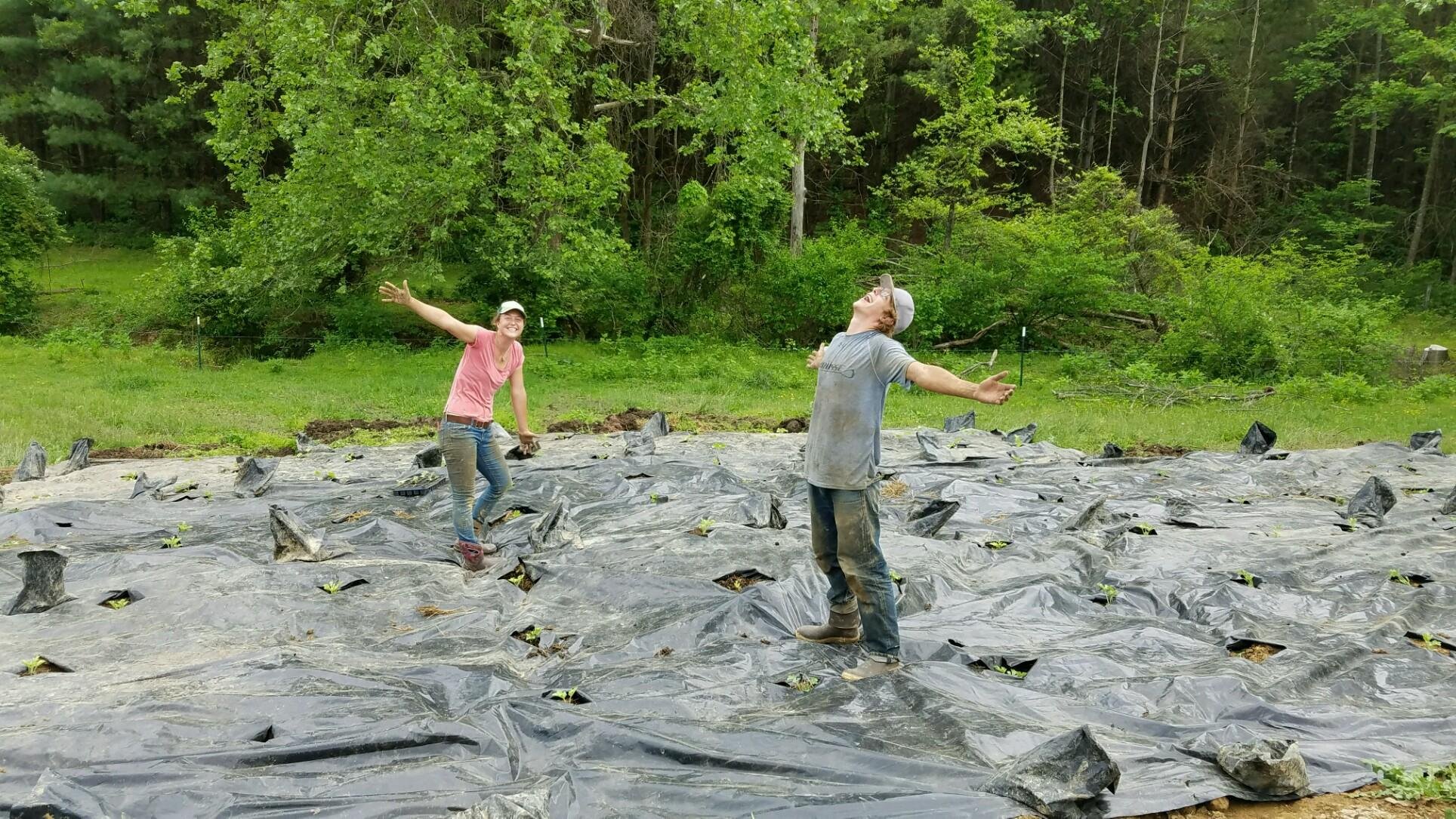Experimenting
Organic farming is a challenge. Or, euphemistically, an adventure! The latest and greatest emerging organic farming adventure for us in the muggy, buggy south, is pest management.
Our worst pests are: flea beetles (responsible for the holes in your salad greens), harlequin bugs (sap sucking jerks!), and cucumber beetles (capable of killing all cucurbit crops—which includes melons, cucumbers, and squash primarily—in a hot minute). Row cover is the most common, and effective, organic control. Covering crops when they're young can keep the bugs off long enough for plants to get big enough to withstand the damage. There are also a few organic sprays that are moderately effective. But, we don't generally like to spray because even organic substances can be dangerous for our bee and pollinator populations.
A third strategy that can be effective in organic pest management is crop rotation. But, it has to be a real rotation—i.e. move crops at least a half mile away every year. We weren't particularly prepared to start on a full crop rotation this year. It is only our second season in operation and I'm still trying to get our various field locations up and running. We don't have a lot of flat, workable land on our farm so it takes some time to bring a new space into production. But, I really wanted to grow melons and our main field (where the melons were supposed to go) is totally infested with cucumber beetles. So, at my father's brilliant suggestion, we decided to try an old horticulture method—plant right into sod with no working of the land. We chose a place below our pond, a field I'm hoping to work up more officially in the next couple of years. There was a part of the field where the cows were fed all winter. It was thick with mud, cow manure, and old partially composted hay—perfect fertilizer! We grabbed an old 50ft x 100 ft piece of silo plastic, spread it out over the muck pile and just planted the melons right through the plastic and into the gooey mess. It was dirty but delightful—guerrilla farming :).
There is no irrigation in this field and no protection, so the melons will either make it or they won't, either way it was a good learning experience and I'm excited to see how they turn out! Also, I'm supposed to remind you—no matter where they were planted, I promise the melons will not taste like poo :).


